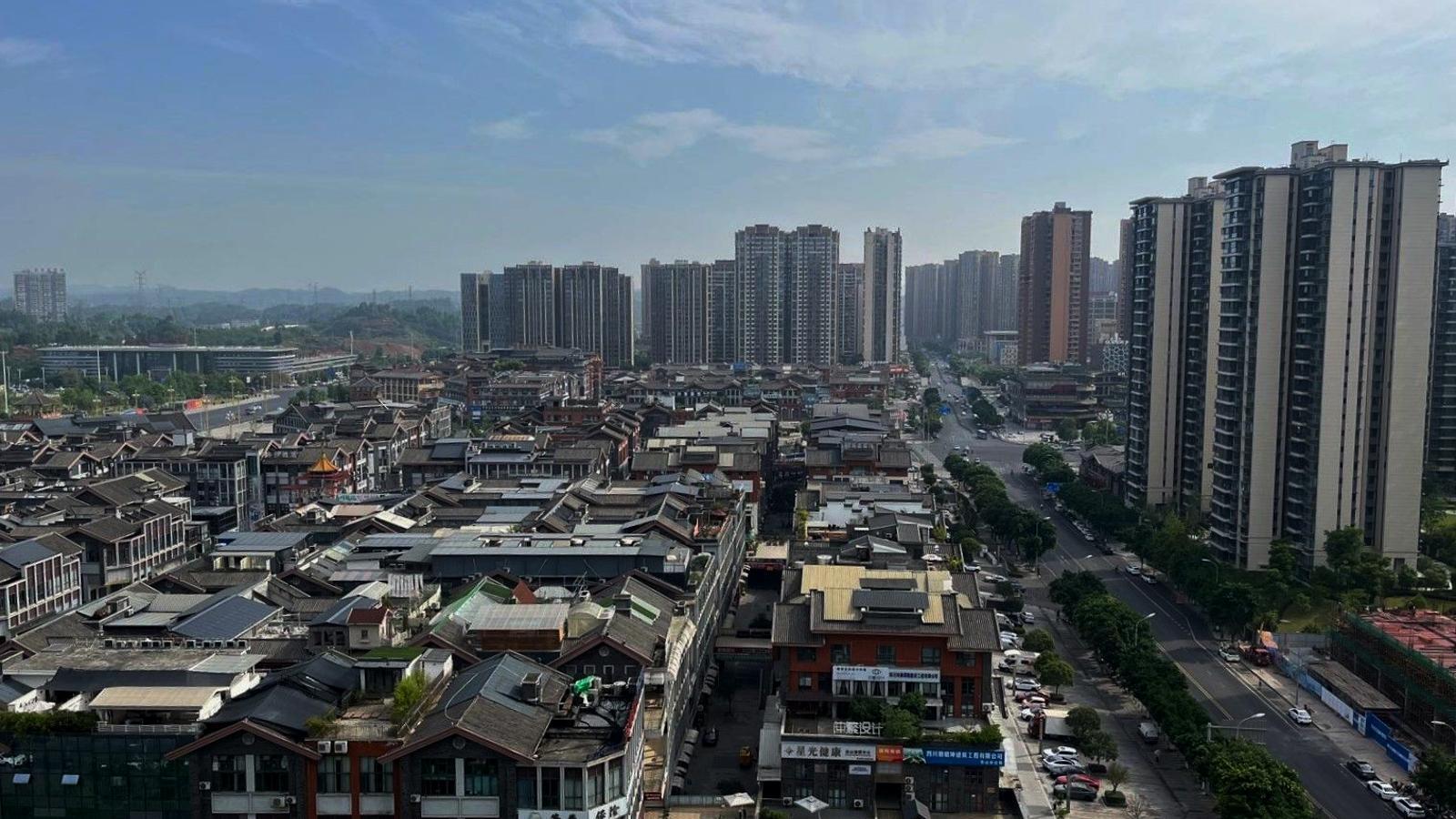Hong Kong Stock Exchange delists Evergrande, icon of China's real estate boom and bust.
Trading in shares of one of China's construction giants had been suspended for a year and seven months.


BarcelonaDozens, even hundreds of 30-story buildings rise beneath the cloudy sky of Xian. The same is true in Chengdu and Changsha, vast metropolises in inland China. In some places, such as Leshan in the west of the country, these slender concrete giants contrast with the rooftops of traditional China, which rest on three- or four-story buildings. These skyscrapers, most of them empty or under construction, form an architectural landscape that explains China's rapid real estate expansion, but also its collapse.
One of the names of the cataclysm was Evergrande, which went bankrupt in 2021 due to its inability to pay its bonds.offshore, that is, the accounting obligations it had abroad. Its collapse opened a dangerous wound in the Chinese economy that threatened to become its Lehman Brothers: construction was one of the engines of its frenetic growth, accounting for 25% of the gross domestic product (GDP, the indicator that measures the size of an economy). China's second-largest real estate company, which employed 123,000 people and had 1,300 real estate developments in more than 280 cities in China, could not pay its debts. Its liabilities amounted to €260 billion, making it the most indebted construction company on the planet.
Without restructuring
Now, four years later, although the great fears of collapse have dissipated, the company continues in free fall: this Monday the Hong Kong Stock Exchange permanently delisted it. The real estate company had had trading in its shares suspended since January 29, 2024, after The Hong Kong High Court declared the company in liquidation. The regulations set a maximum of eighteen consecutive months of suspension, and they ended last month. "The company did not comply with the resumption guidelines established by the Stock Exchange and did not resume trading of its shares before July 28, 2025. On August 8, 2025, the Listing Committee decided to delist the company's shares from the Stock Exchange in accordance with Rule 6." a few days ago in a statement.
Its shares, which rose to HK$31.55 (equivalent to €3.45) in 2017, were already suspended in March 2022 due to the inability to submit accounts on time, an essential requirement to remain listed on the Stock Exchange. In August 2023, one year and five months later, Evergrande returned to the Hong Kong Stock Exchange with a 79% drop. In the middle, in March, it had presented a restructuring plan for nearly 18.9 billion euros of external debt, but failed to reach an agreement with its creditors, leading to the second suspension, which became final on Monday.
The causes of its fall were diverse. In the scenario of over-indebtedness of companies like Evergrande, it was its construction policy heavily based on debt, driven by financial leverage policies, to respond to the residential expansion desires of Chinese local governments. In 2020, when the Chinese government detected over-indebtedness and excessive construction, it promoted the policy of the three red lines to curb the debt of real estate companies. This made it difficult for them to finance themselves and quickly faced liquidity problems. At the same time, the arrival of the pandemic brought the real estate market to a screeching halt.
One of the chapters that finally culminated in the disaster was a €533 million fine imposed by the China Securities Regulatory Commission (CSRC) on Evergrande's subsidiary Hengda Real Estate. for having inflated the accounts by 72.062 billion euros and for suspicion of fraud in the issuance of corporate bonds.
